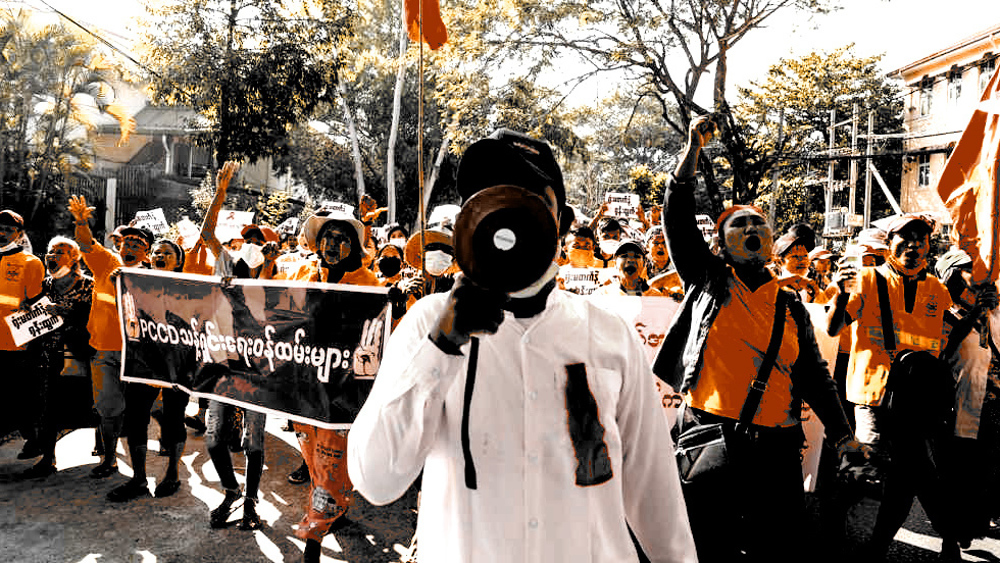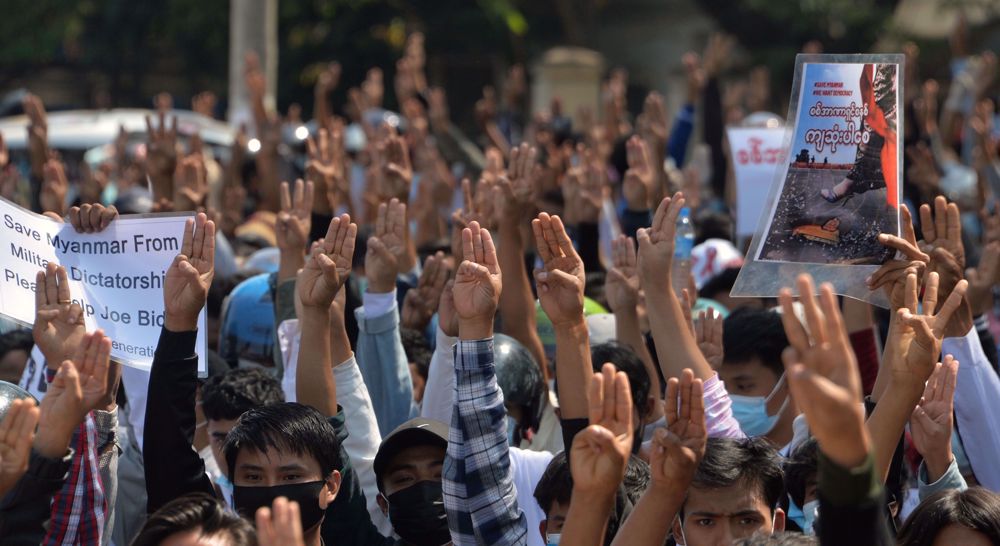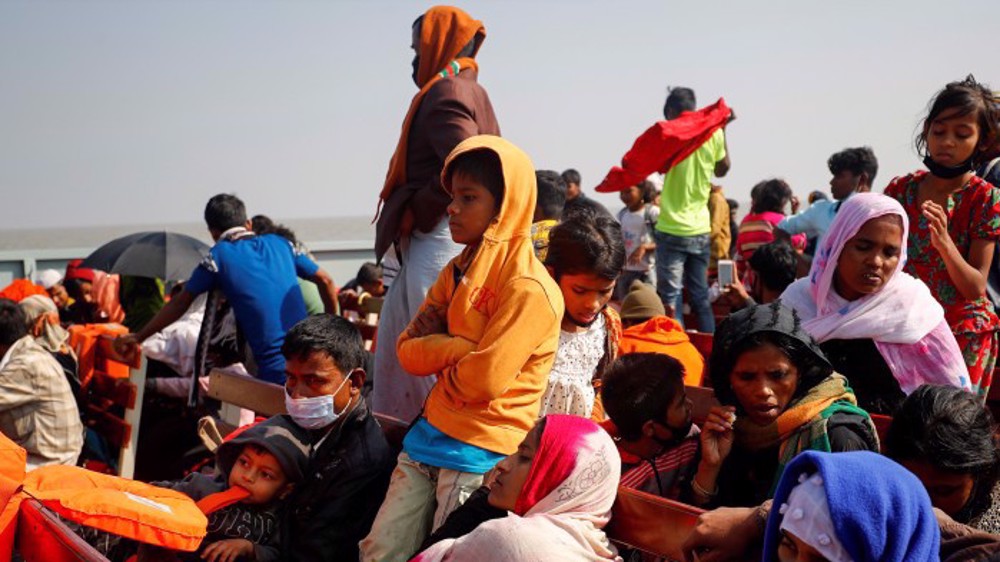Myanmar junta warns people against hiding activists as protests continue for 9th day
Myanmar's military has issued arrest warrants for several anti-coup activists and warned the public against hiding them, as mass protests continue against the military takeover for a ninth consecutive day.
The military, which took over the government in a coup d'etat early this month, has stepped up arrests of veteran campaigners, including doctors and others who have joined a civil disobedience movement against the coup.
The junta has also warned people against harboring the activists, after it issued arrest warrants on Sunday.
“If you find any fugitives mentioned above or if you have information about them, report to the nearest police station,” said a notice in state media. “Those who receive them will (face) action in accordance with the law,” it added.
The military’s list of fugitives includes activist Min Ko Naing, who spent more than a decade in prison after being arrested in 1988, when he was a university student.
He published a video on Facebook on Saturday, saying the military was “arresting the people at night.”
“They could crack down forcefully and we will have to be prepared,” he said hours before his arrest warrant was issued.
More than 384 people have been detained since the coup, in a wave of mostly nightly arrests, according to the monitoring group Assistance Association for Political Prisoners.
Among the detainees are many top political allies of ousted leader Aung San Suu Kyi Suu, who has not been seen in public since she was detained on the first day of the coup on February 1.
Suu Kyi’s detention is due to expire on Monday, but it is not clear what is set to happen to her afterwards.

Mass protests continue across Myanmar
Crowds returned to the streets of the country’s biggest city, Yangon, on Sunday, carrying placards demanding the release of Suu Kyi.
Many people were also carrying signs calling on the military to “stop kidnapping people at night.”
In the capital, Naypyitaw, a convoy of thousands on motorbikes and in cars drove through the city, with protesters holding up images of Suu Kyi.
In the meantime, people in different neighborhoods in Yangon and second city Mandalay, have begun forming neighborhood watch brigades to monitor their communities overnight in order to prevent the arrests of residents.
The army reinstated a law on Saturday night, requiring people to report overnight visitors to their homes and ordered the arrest of well-known backers of mass protests.
On February 1, the military said it had arrested Suu Kyi and her associates over accusations of voter fraud in favor of her National League for Democracy (NLD) party in the November 2020 elections.
The military handed power to commander-in-chief Min Aung Hlaing and pledged to hold fresh elections and hand power to the winning party.
The general has so far been unmoved by a torrent of international condemnation against the coup.
Myanmar was ruled by the military until 2011, when Suu Kyi ended the junta rule and introduced what were presented as reforms. She had been under house arrest before.
Her party, however, cultivated close relations with the military from the beginning of its activity and formed an alliance with senior military officers.
She supported the military in a deadly campaign of genocide against the Rohingya Muslim community in the western state of Rakhine.
Suu Kyi also defended military atrocities against the Rohingya people at the United Nations top court in The Hague in December 2019.
Hezbollah attacks Israeli forces after Lebanese homes blown up
World leaders, states hail ICC arrest warrants for Netanyahu, Gallant
MP: US accountable for possible Israeli 'foolishness' to attack Iraq
VIDEO | Israeli policies strangle Palestinian agriculture, economy
Iran's president offers condolences to Pakistan over terrorist attack
Canada’s Yukon town council at standstill over refusing oath to King Charles
Yemen's Houthi calls for jihad to protect Palestine against Israel
VIDEO | Internal rifts within Israel














 This makes it easy to access the Press TV website
This makes it easy to access the Press TV website